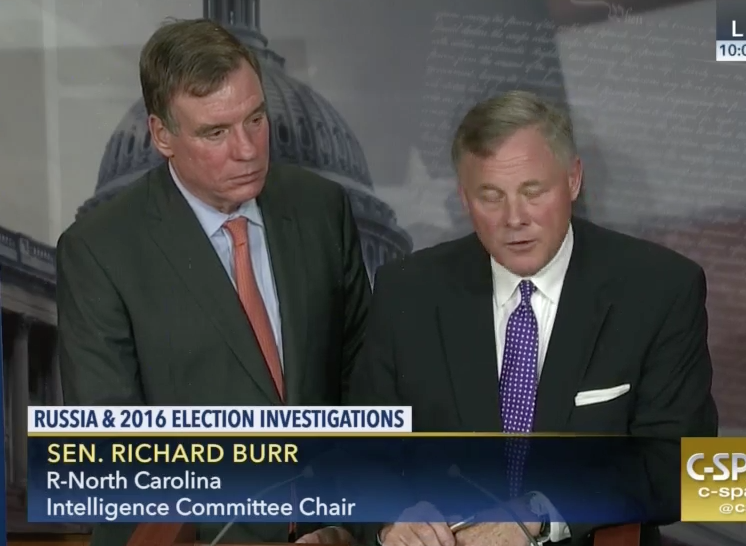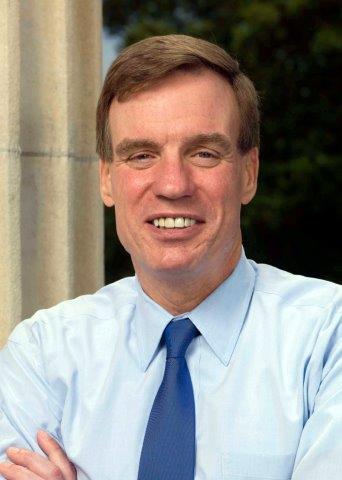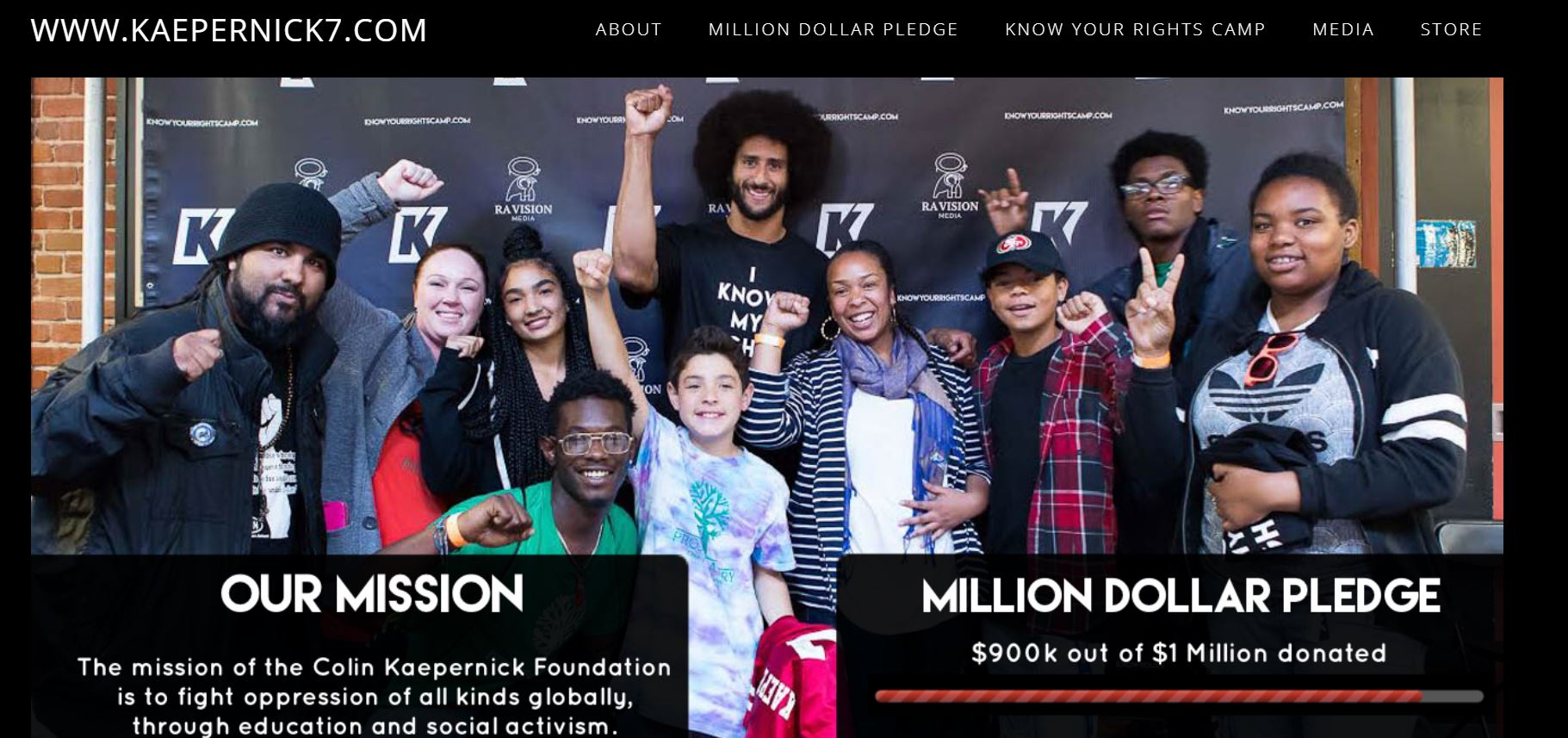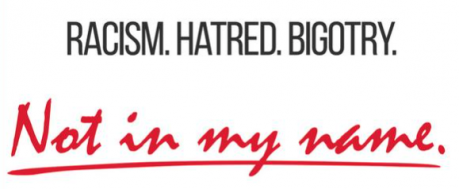Congratulations to Donald Trump, who may have finally figured out how to prove his March 4 claim that there was a “tapp” on Trump Tower — by continuing to speak to Paul Manafort after FBI got a second FISA wiretap on him, at least according to the CNN’s report on the tap.
US investigators wiretapped former Trump campaign chairman Paul Manafort under secret court orders before and after the election, sources tell CNN, an extraordinary step involving a high-ranking campaign official now at the center of the Russia meddling probe.
The government snooping continued into early this year, including a period when Manafort was known to talk to President Donald Trump.
[snip]
The conversations between Manafort and Trump continued after the President took office, long after the FBI investigation into Manafort was publicly known, the sources told CNN. They went on until lawyers for the President and Manafort insisted that they stop, according to the sources.
It’s unclear whether Trump himself was picked up on the surveillance.
I mean, if you’re dumb enough to talk to a guy under active investigation, you should expect to be tapped. Trump should know this from his NY mobster buddies.
The CNN report — by the same team that last month revealed Carter Page had actually been wiretapped going back to 2014, too — is maddeningly vague about the dates of all this. Manafort was first targeted under FISA for his (and associated consulting companies, probably including Tony Podesta) Ukrainian influence peddling in 2014. Then the order lapsed, only to have a new one, possibly last fall, approved in association with the Trump investigation.
A secret order authorized by the court that handles the Foreign Intelligence Surveillance Act (FISA) began after Manafort became the subject of an FBI investigation that began in 2014. It centered on work done by a group of Washington consulting firms for Ukraine’s former ruling party, the sources told CNN.
The surveillance was discontinued at some point last year for lack of evidence, according to one of the sources.
The FBI then restarted the surveillance after obtaining a new FISA warrant that extended at least into early this year.
[snip]
The FBI interest deepened last fall because of intercepted communications between Manafort and suspected Russian operatives, and among the Russians themselves, that reignited their interest in Manafort, the sources told CNN. As part of the FISA warrant, CNN has learned that earlier this year, the FBI conducted a search of a storage facility belonging to Manafort. It’s not known what they found.
The gap would presumably have excluded June, given that Mueller reportedly didn’t learn about the June 9 meeting until the usual suspects started turning over records on it (though I may come back to that).
The report of a fall wiretap, based in part on intercepts of Russians, would put it well beyond the time Manafort got booted from the campaign (and might be consistent with the reporting of an earlier application followed by ultimate approval in the fall). The mention of a search of a storage facility suggests that Manafort would have been targeted under both 1805 (data in motion) and 1824 (data at rest, plus physical search like that used with the storage facility).
Here’s some relevant information from last year’s FISC and I Con the Record transparency numbers.
For the same authorities (1805, 1824, 1805/1824, and 1881c), the FISA Court, which uses different and in most cases more informative counting metrics, reports 1,220 orders granted, 313 orders modified, and 26 orders denied in part (which add up to I Con the Record’s 1,559), plus 8 orders denied, which I Con the Record doesn’t mention.
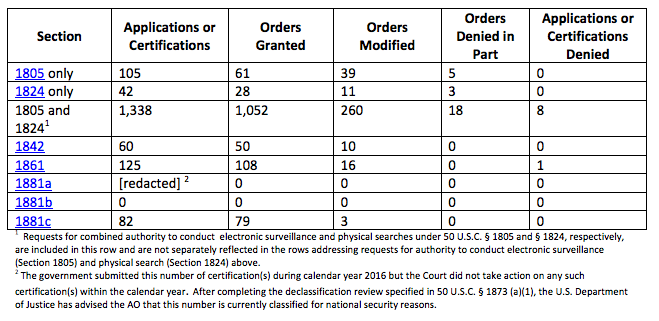
As an improvement this year, I Con the Record has broken down how many of these targets are US persons or not, showing it to be 19.9%. That means the vast majority of targeted FISA orders are targeted at people like Sergey Kislyak, the Russian Ambassador all of Trump’s people talked to.
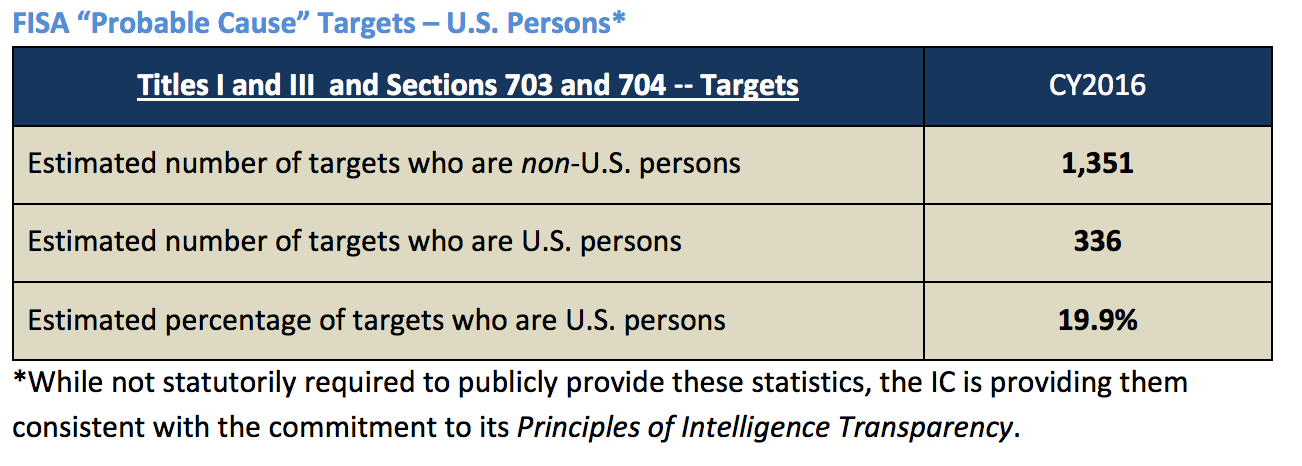
This is the target number for the original report, not the order number, and it is an estimate (which is curious). This means at least 28 orders target multiple people. Neither ICTR nor FISC reveals how many US persons were approved for 705b, meaning they were spied on when they went overseas.
I include this, especially the FISC numbers (the top ones), to show that for the category that Manafort would have been targeted under, the court outright rejected 8 applications, denied in part — perhaps by approving only some of the facilities in the application — 18, and modified — which can often be minimization procedures — 260. Note, too, that among all the individual orders approved last year, roughly 336 were targeted at Americans like Manafort and Page. I assume there would be more minimization procedures on those targeting Americans, especially those who hang out with political candidates or the President.
All of which is my way of saying that for Manafort, in particular, the FBI may have had to use some kind of clean team to separate the political items from the foreign intelligence ones. The members of Congress that are the most likely sources for this story probably would have known that too, but it wouldn’t serve the point of the leak as well if that detail were included.
One more point.
The CNN piece is clear: FBI had a FISA order targeting Manafort (and probably others, probably the same ones who’ve been asked to testify, including Tony Podesta’s group), then let it lapse. They then got an order focused on election-related issues.
By the point they got the election-related FISA, the FBI was very deep into their investigation of Manafort for money laundering (and in NY, where FBI agents are notoriously gabby).
But at least given all the public reporting thus far, there have been no reported criminal warrants against Manafort, at least not before the no-knock search in VA this summer.
Which is odd, because they sure seem to have probable cause against him for crimes, as well. If Manafort were targeted by a criminal warrant, it’s nowhere near as clear that any minimization would be overseen by a court. That is, it might be more likely that Trump would get picked up in his rash conversations with someone known to be under investigation if that person were targeted with a criminal warrant than if he were targeted under FISA.
One, final, point. Craig Murray, who ferried something (though not emails) to Julian Assange in September 2016 claimed the emails had been picked obtained by American National Security types wiretapping [John] Podesta because of the Podesta Group’s lobbying for Saudi Arabia. As I noted at the time, that didn’t make any sense, partly because Tony would have been the target, not John, but also the FBI wouldn’t be all that interested in lobbying for Saudi Arabia.
Murray claimed the documents came from someone in the national security establishment, and implied they had come from legal monitoring of John Podesta because he (meaning John) is a lobbyist for Saudi Arabia.
Again, the key point to remember, in answering that question, is that the DNC leak and the Podesta leak are two different things and the answer is very probably not going to be the same in both cases. I also want you to consider that John Podesta was a paid lobbyist for the Saudi government — that’s open and declared, it’s not secret or a leak in a sense. John Podesta was paid a very substantial sum every month by the Saudi government to lobby for their interests in Washington. And if the American security services were not watching the communications of the Saudi government paid lobbyist then the American intelligence services would not be doing their job. Of course it’s also true that the Saudis’ man, the Saudis’ lobbyist in Washington, his communications are going to be of interest to a great many other intelligence services as well.
As a threshold matter, no national security agency is going to monitor an American registered to work as an agent for the Saudis. That’s all the more true if the agent has the last name Podesta.
But that brings us to another problem. John Podesta isn’t the lobbyist here. His brother Tony is. So even assuming the FBI was collecting all the emails of registered agent for the Saudis, Tony Podesta, even assuming someone in national security wanted to blow that collection by revealing it via Wikileaks, they would pick up just a tiny fraction of John Podesta’s emails. So this doesn’t explain the source of the emails at all.
They would — and apparently were — interested in tapping all the corrupt people working with corrupt Ukrainians, including Manafort and, maybe, Tony (but not John).
This in no way confirms Murray’s explanation — his story still makes no sense for the reasons I laid out when I first wrote the post. But I find it particularly interesting that Tony Podesta may well have been wiretapped along with Manafort, for his Ukrainian influence peddling, not his Saudi influence peddling, earlier in the year last year.

